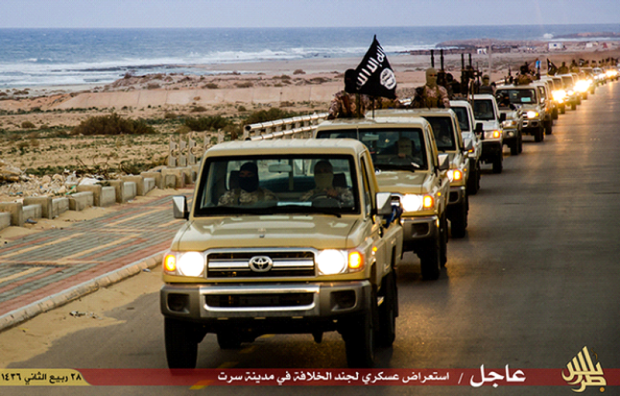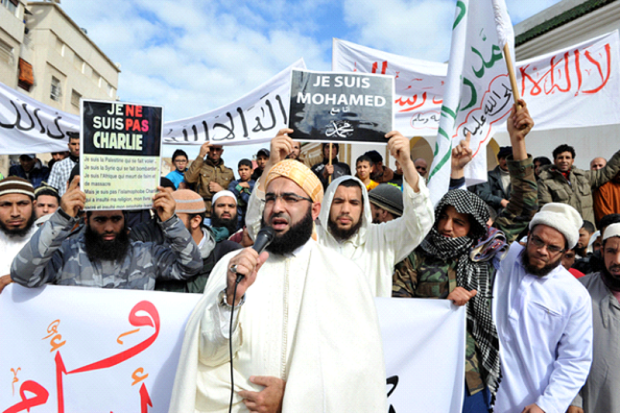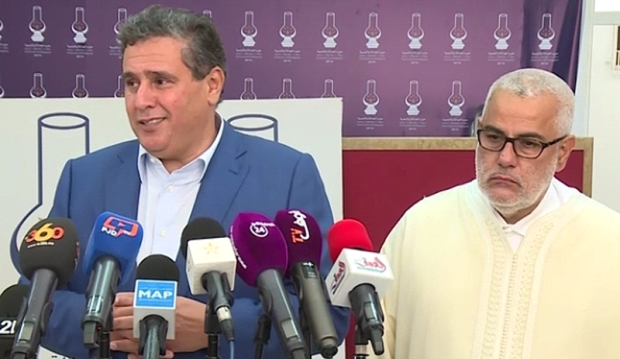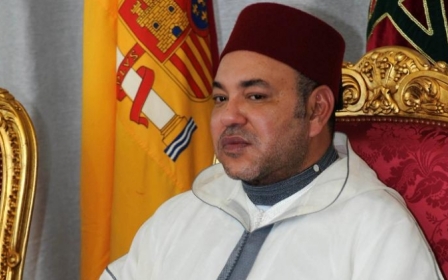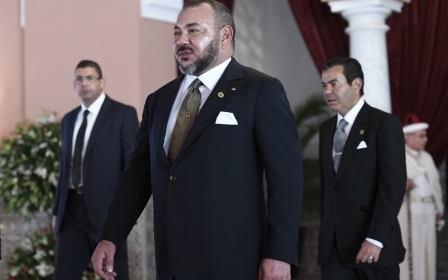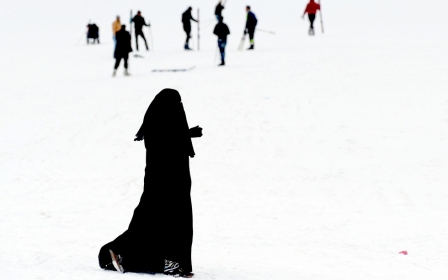Morocco let extremism grow, says former radical preacher
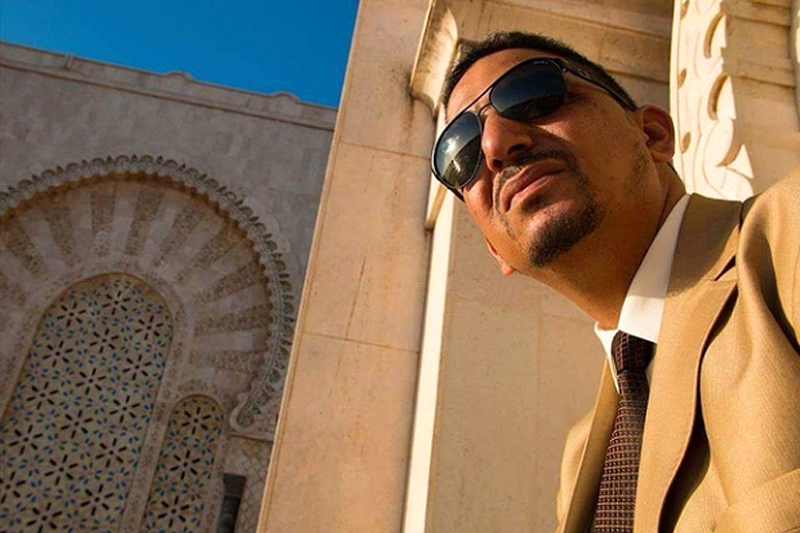
Using one's dubious past to prevent young people from being radicalised - this is what Mohamed Abdelouahab al-Rafiqi, better known as Abou Hafs, is now doing with his life.
Sentenced to 30 years' prison by Morocco for sympathising with terrorism after the attacks on 16 May 2003 in Casablanca, the former preacher was released by royal pardon in 2012 during protests by the 20 February movement against the jailing of political prisoners.
Unlike his former companions Hassan Kettani or Omar Haddouchi, who were also pardoned, he soon after stated his opposition to "jihadism" in Syria. His new line has led to much criticism from Salafi circles.
''The state has a real responsibility in the expansion of the extremist ideology. It has allowed Saudi Arabia to spread its ideology in Morocco'
After his release, he joined the Islamist Renaissance and Virtue party (PRV) and also stood, albeit unsuccessfully, in the parliamentary elections in October under the colours of the Istiqlal party in Fez.
Today, he is calling for a review of Islamic heritage to combat the ideology championed by the Islamic State, and is opening a centre against radicalisation in Morocco.
In this interview, he also looks back on his time in prison, during which he studied law and sociology and claims to have "deradicalised" himself, to use his own words.
MEE: According to the Moroccan authorities, about 1,500 Moroccans have joined Islamic State. What is attracting them?
Abou Hafs: IS could have appealed to young people even if it were in Siberia. Their project is related to an idea, and not to a geographical location.
For me, the search for identity represents the main motivation of these young people. The model of the "nation state" in Islamic countries is not meeting their aspirations, or requirements, whether religiously or economically. This nation state is neither 100 percent a modern state, nor a religious state as in the past and this has led to an identity problem.
This model has produced people without an identity, who feel that they do not really belong. They do not feel like real citizens and are seeking a model which fulfils them. Since they are marginalised, they are seeking a state which meets their aspirations. When they join the IS, they are given responsibility, weapons, feel interesting, powerful and like they have a purpose.
The other motivating factor is ideological. In Islamic literature, people talk about the Islamic state, the Caliphate. For them, IS has managed to achieve this dream whereby all other experiences have failed. While the Taliban was merely a regional movement, IS has managed to bring together Muslims from the whole world.
MEE: You talk of an identity and ideology, but not religion.
AH: Religion is an extremely important factor as it is the trigger which gives real motivation. In Islamic literature, people talk about "jihad", and notably the culture of martyrs. Verses and hadiths are instrumentalised so as to encourage young people to join the ranks of IS. And sheikhs, ulamas [Sunni theologists] – even those who claim to be moderate, even those who claim to be anti-IS, speak of "jihad", the virgins of paradise, and death as a martyr, in their preaching. They continue to talk about this even though young people are influenced by these themes. And young people tell them: "IS is doing everything you talk about."
MEE: You have called for a review of the Islamic heritage but nothing has changed since then. Are you still convinced this is what's necessary?
The Islamic heritage needs to be reviewed, namely the fiqh books [Islamic case law], the interpretation of Islam, the application of verses of the Quran and hadiths in a clear context. This heritage is a human production, it is not something that is sacred. Also, this heritage should be linked to its geographical and historic heritage. We have no obligation to follow it as it is.
Sheikhs and IS do not understand that this is not static. The problem is that the vast majority of this part of the heritage was produced when the state was religious, and everywhere, not only in the Muslim world. It was directly linked to this type of state. Today, things have changed. We talk of the modern state, and citizens, whilst IS wants to return to a religious state. Everything that IS does is justified in this heritage.
I believe that each period should make its own interpretation of these texts. The problem of Salafis in general, and IS, is that there is a single interpretation that they believe should be practiced at all times. Sheikhs do not want to review this heritage either. But how can we stop IS and at the same time endorse the heritage that has produced it?
MEE: When you were young, you did subscribe to this heritage and with a strict interpretation of these texts.
AH: As with all young people, I was the product of my family and environment. It was a very conservative environment. I studied at Quranic school and then in religious schools, in Saudi Arabia, notably. When I subscribed to this Salafist vision, I was the product of my environment. I was not really convinced by the ideas I was championing. I simply repeated more or less what I was taught. The day I decided to open up to culture, other ideologies, and books, quite simply, I decided only to believe what I could prove.
It was a decision that I took myself. But I took it with caution. I used all of my knowledge, almost like I was recycling, so as to see what I would keep and what I would leave to one side. The vast majority of that which I had learned previously, I left to one side. Building my own convictions took me a long time, about nine years. I spent seven years in a solitary cell. Day and night, I had nothing to do.
The international context encouraged me to be more extreme, and nobody at the time told me: "You need to review your ideas". Nobody told me: "Read this book." Everything encouraged me to continue on this route, to be a symbol for young people. I was turned into a hero. I consider what I did as an exploit as I took my decision alone. I was threatened with death by other inmates. You need to make exceptional efforts to change. A lot of young people do not have this strength to deradicalise themselves.
MEE: What would you say to a young people who is planning to join IS?
AH: I use my life experience to prevent others following in my footsteps. I show them that the base of all of this is ideological. I simply pick apart their thinking, the basic ideas behind extremism with arguments taken from the Quran and hadiths. This is the most important step. In general, their knowledge of religious foundations is not solid. Afterwards, it is very simple. Then you can simply use logic to tell them: "What will this bring you?" explaining that they will give their life for something which is not worth it.
MEE: By using your own experience, what can you say about the responsibility of the Moroccan state in the development of extremism?
The state has a real responsibility in the expansion of the extremist ideology. It has allowed Saudi Arabia to spread its ideology in Morocco. Hundreds of Islamic schools have been funded by Saudi Arabia. This has allowed Wahhabi books to be used in Morocco. These could be found in any bookshop or in mosques.
I don't understand how a young person of 15 could travel alone outside of Morocco to reach the middle of a country like Afghanistan, Saudi Arabia or Pakistan. Where is the duty of responsibility of the state? Morocco was on the side of the US and encouraged young people to travel there.
In Afghanistan, I met with some of these young people, often younger than me, who were carrying weapons. And how did the state not want them to be impregnated by extremist ideas on their return?
MEE: Why did you get into politics?
AH: I believe that intellectuals who are cast aside from politics are isolated. Especially after my experience in prison. I was sure that the project on which I am working should be supported by political forces.
It is the political parties who have the resources to support this type of project. After my release from prison, I had a goal to contribute towards the deradicalisation of young people. I used all of my experience, my past, my thinking and offered it to those who wanted to fight against terrorism. I sought support from political parties, firstly the PRV, but this was not successful as it is a small party with few resources.
Then, with Istiqlal, we decided to open a mediation and study centre.
It was planned to open it sooner but was delayed by the fact that the formation of a new government was blocked.
This centre will target subjects related to religion and will observe everything related to religion, official or unofficial religious establishments, and stakeholders in the religious sector. We will also publish literature and writing which will help to fight against the ideology of war, against extremism.
New MEE newsletter: Jerusalem Dispatch
Sign up to get the latest insights and analysis on Israel-Palestine, alongside Turkey Unpacked and other MEE newsletters
Middle East Eye delivers independent and unrivalled coverage and analysis of the Middle East, North Africa and beyond. To learn more about republishing this content and the associated fees, please fill out this form. More about MEE can be found here.


